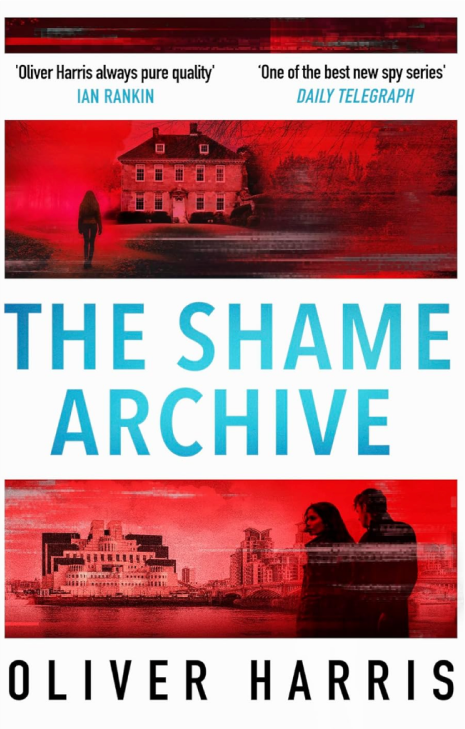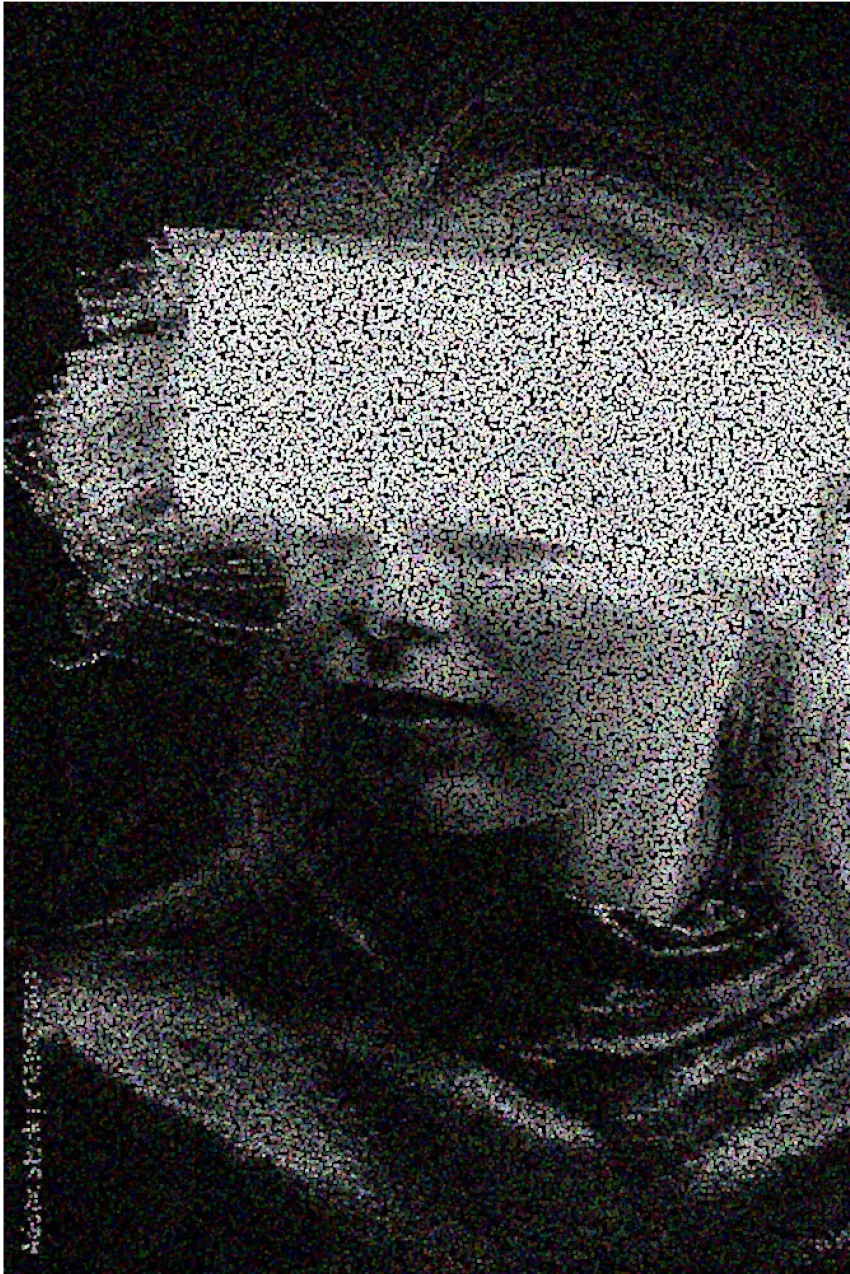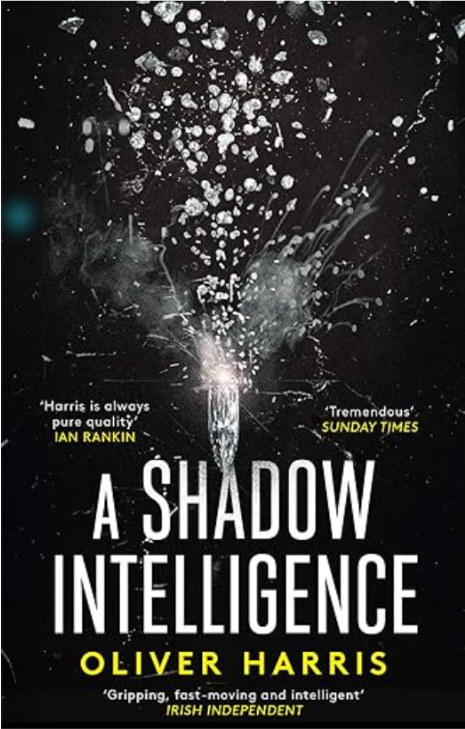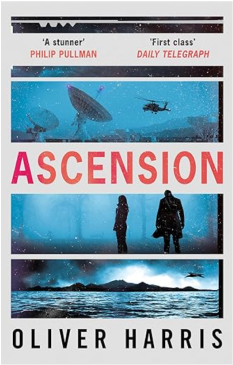Menu
Menu
—

How does a secret service confront its past, when its secrets must never be revealed?
Buried deep in MI6’s digital archives is the most classified directory of all. It doesn’t contain war plans or agent profiles, but shame: the misdeeds of politicians, royalty, business leaders and the service’s own personnel.
There are seven decades’ worth of images and recordings, usually acquired for the sake of assessing risk, sometimes as a guard against betrayal, often engineered by MI6 for their own purposes. They are the most sensitive two thousand terabytes of data in the Service’s possession. When material from the archive begins appearing online, panic spreads through the Establishment like wildfire. At first, the security breach only manifests itself in apparently random events: a suicide, a disappearance, a breakdown. But when it’s discovered that the individuals concerned were all contacted by the same anonymous person, a connection comes into focus. The archive has been leaked. The hunt is now of unprecedented urgency before the entire political and business systems are fatally weakened. That’s when they call for Elliot Kane…

‘Captivating and horrifying at once, a completely plausible evocation of the putrid morass that is the British Establishment and its craven capitulation to Russian money – or indeed, any money. Oliver Harris is squarely in the territory of the greats: Greene and le Carré but also the modern masters, Mick Herron and Adam Brookes. There can be no higher accolade’
‘By turn cerebral and high-octane, The Shame Archive is a flawless political thriller: gripping, smart and hugely enjoyable. The tension builds with such fervour that by the final unexpected twist, I was left with my heart in my mouth. Now finished, all that remains is to devour Harris’ entire back-catalogue whilst I await the next instalment.’
‘The skill with which Oliver Harris structures and paces The Shame Archive shows he has all the tools a thriller writer needs. Highly recommended.’
‘Oliver Harris has crafted an enthralling tale… Harris steadily cranks up the tension, relating Sinclair’s and Kane’s stories with skill and verve until they meet in an explosive climax.’

Extract from the book
The first message came in at 6 a.m. Rebecca Sinclair was already up, cradling a tea on the balcony, claiming her five minutes of peace before the week began. When, in the coming days, she thought back to this moment she was grateful that her phone had been on silent, that she didn’t see the message immediately, and had enjoyed a last few breaths of summer before her life collapsed.
Robert was downstairs. She could hear him practising the speech he was due to deliver today in the House of Commons. No other sounds but the birds; her daughter remained asleep, her stepson and stepdaughter stayed with their mother in London during term times. Rebecca’s companion was the quiet drama of the Chilterns: the sheer edge of Watlington Hill tumbling into the grass beneath it, the inviting darkness of the beech wood across its back like a pelt. Then, as the new sun tiptoed across Christmas Common, a revelation of wildflowers dusting the chalky soil. Mist lingered here. On quieter days she could go out and try to catch it in her hands, but not this morning.
She lifted her phone to check the time and saw a new WhatsApp message from an unknown number. No name, no picture, just one line: I know who you really are.
Rebecca stared at the words. She went to delete the message but placed the phone face down on the mattress and turned back to the view. Then she picked up the phone again. The brevity of the message gave her a chill. Some scam, she wanted to think, but that didn’t feel right. Scams deceived. There was no deception here, just a forthright claim. Rebecca wondered if she should show it to her husband, but knew at once that she wouldn’t, and felt sick.
When she came downstairs Robert was pacing the kitchen, in a crisp shirt and blue silk tie, arching carefully over his coffee with each sip. The day’s newspapers were piled up on the table, unread. Rebecca scanned the front pages for anything worth alerting him to, knowing he had teams of people to do this now but wanting to preserve her role as filter and messenger. Being a member of the Cabinet didn’t just bring official cars and red boxes and TV interviews but also a whole new level of scrutiny.
She placed the Guardian down.
‘Michael De Souza still gunning for you.’
Her husband drained his coffee cup and placed it squarely over the journalist’s byline.
‘I don’t want to see his face at this time of day.’ He grimaced, kissed her, glanced at the clock. ‘Thanks for the warning.’
The MP scanned his speech a final time as he dropped it into his briefcase, then straightened and addressed the kitchen. ‘A family, at its best, teaches us our values, shapes our identity and nurtures our sense of responsibility,’ he said.
‘You used my line.’
‘That’s why today we will improve the Troubled Families programme, to provide vulnerable families with the intensive support they need—’
Their intercom chimed. Robert checked the security screen, saw his governmental ride and buzzed the gates open.
A Range Rover pulled up outside Howe Cottage, beside the five-hundred-year-old yew tree. Here when Chaucer was still a twinkle in his father’s eye, as Robert liked to tell guests.
Robert’s driver emerged, gave Rebecca a friendly salute through the window.
‘Don’t forget the reception tonight,’ she said, as her husband tied his shoes. ‘Black tie. Have you got what you need for that?’
‘At the office. I’ll message you.’
Another kiss, then he was gone. Only when the front gate had whirred closed behind them, did she look at the message again.
I know who you really are. This was what she was, she thought, glancing around the wooden beams and antique furniture of her home; the evidence surrounded her, exhaustingly so. Wife of a politician in a Grade II listed cottage, with an eight-year-old daughter she really needed to rouse and feed. But what a perfectly chosen message. She tried to smile. If you had to choose six words to strike fear into someone… How many people could look at their life and think: this is everything; I have nothing to hide?



